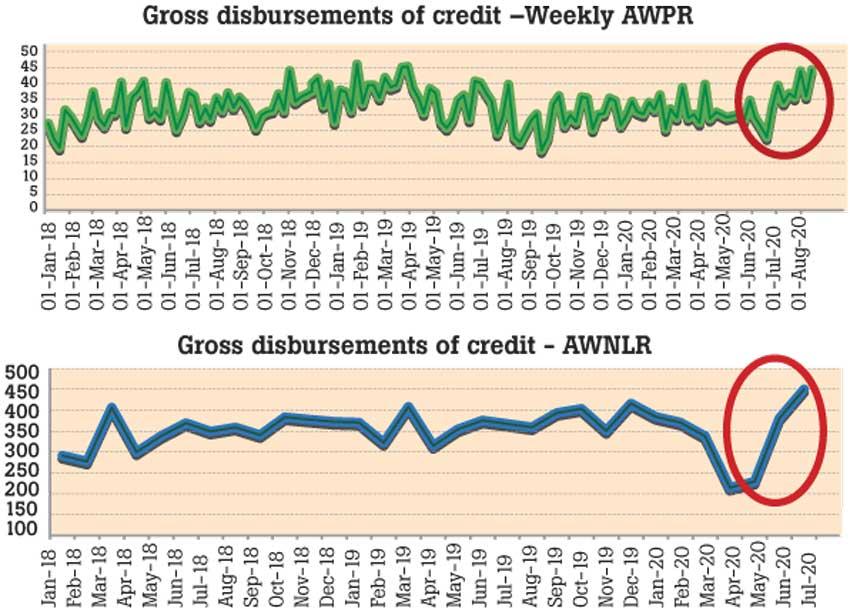26 Aug 2020 - {{hitsCtrl.values.hits}}

Although the outstanding private credit showed a slight contraction, the disbursements of new loans starting from July showed a rapid acceleration, reaching beyond the pre-pandemic levels pointing to expansion in the economy.
According to the latest Central Bank data published on gross loan disbursements by the banking sector from January 2018 to end-July 2020 showed a surge in loan disbursements from around July as banks ramped up lending under both the Central Bank refinance scheme and their own loan schemes.
The data showed that loans to both prime customers of banks, typically identified by prime lending rate priced loans and all other loans denoted by average weighted new lending rate have swung upside from around July surpassing even the
pre-pandemic levels. “With regard to private sector credit, although the credit outstanding has shown a contraction, gross disbursements have continued to increase, and we believe that all these indicators show the economy is ready to move beyond the recovery phase to an expansion phase,” said Dr. Chandranath Amarasekara, Director of Economic Research at the Central Bank. Central Bank expects the enhanced focus for production aimed at import substitution and growth in exports to drive near term growth with potential implications for long-term growth horizon in both credit and economy in Sri Lanka.
Sri Lanka, as well as other nations are creating a fertile atmosphere to build and strengthen local industries as their vulnerabilities were exposed during the lockdowns when the pandemic showed their over reliance on overseas supplies, including essentials such as food
and medicines. While the monetary authority has forced borrowing costs down to near all-time lows, facilitating access to finance by existing and prospective enterprises, the government has shown its commitment through lower taxes, import controls, regulatory reforms and assigning ministries for priority sectors.
This week, the government also took a policy decision to ratchet up research and development on building new technologies to enhance productivity of the agricultural sector. A robust industrial policy supporting manufacturing with sufficient resources and investment allocation by both the government and the private sector is of paramount importance to generate well paying jobs, stable employment and faster productivity growth, as free markets do not allocate well resources across all sectors of an economy as seen from the current lopsided growth in the country.
18 Nov 2024 12 minute ago
18 Nov 2024 47 minute ago
18 Nov 2024 48 minute ago
18 Nov 2024 1 hours ago
18 Nov 2024 1 hours ago